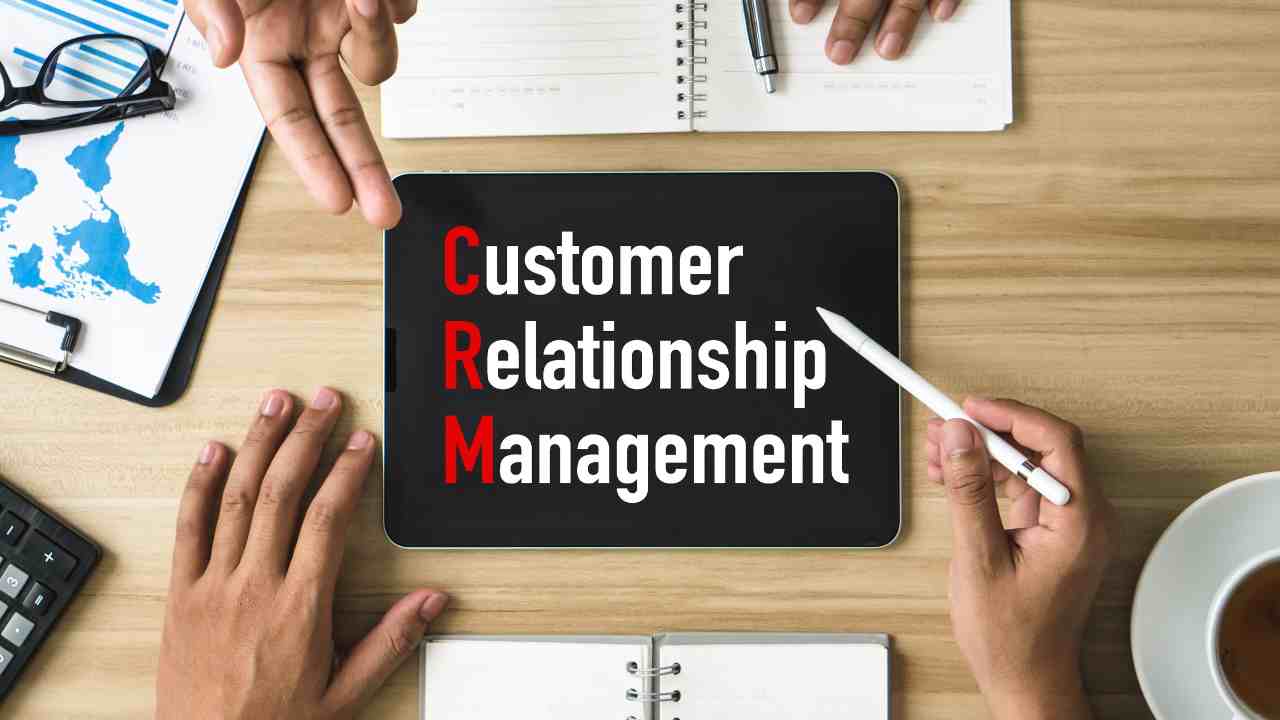Challenges of Utilizing Advanced Analytics to CRM Data

Customer Relationship Management (CRM) systems have become an essential tool for businesses to manage their interactions with customers. These systems collect and store vast amounts of data, providing valuable insights into customer behavior and preferences. However, extracting meaningful insights from this data can be a complex task. Advanced analytics techniques offer the potential to unlock the full value of CRM data, but they also come with their own set of challenges. In this article, we will explore the challenges businesses face when utilizing advanced analytics to CRM data and discuss strategies to overcome them.
1. Data Quality and Integration
One of the primary challenges in utilizing advanced analytics to CRM data is ensuring data quality and integration. CRM systems often contain data from multiple sources, such as sales, marketing, and customer service. This data may be stored in different formats and structures, making it difficult to integrate and analyze effectively.
Furthermore, data quality issues, such as missing or inconsistent data, can significantly impact the accuracy and reliability of analytics results. For example, if customer contact information is incomplete or outdated, it can lead to ineffective targeting and personalization efforts.
To address these challenges, businesses should:
- Implement data cleansing and normalization processes to ensure data consistency and accuracy.
- Invest in data integration tools and technologies that can consolidate data from various sources into a unified format.
- Regularly monitor and validate data quality to identify and rectify any issues.
2. Data Privacy and Security
Another significant challenge in utilizing advanced analytics to CRM data is ensuring data privacy and security. CRM systems contain sensitive customer information, such as contact details, purchase history, and communication records. Analyzing this data requires careful consideration of privacy regulations and protection against potential security breaches.
Businesses must comply with data protection laws, such as the General Data Protection Regulation (GDPR) in the European Union, which impose strict requirements on the collection, storage, and processing of personal data. Failure to comply with these regulations can result in severe penalties and damage to the company’s reputation.
To address these challenges, businesses should:
- Implement robust data security measures, such as encryption and access controls, to protect CRM data from unauthorized access.
- Adopt privacy-by-design principles, ensuring that data privacy is considered at every stage of the analytics process.
- Obtain explicit consent from customers before collecting and analyzing their data, and provide transparent information about how their data will be used.
3. Skill Gap and Expertise
Utilizing advanced analytics techniques requires a high level of technical expertise and analytical skills. Many businesses lack the necessary resources and expertise to effectively analyze CRM data using advanced analytics methods. This skill gap can hinder the adoption and utilization of advanced analytics in CRM.
Furthermore, the field of advanced analytics is constantly evolving, with new techniques and algorithms being developed regularly. Keeping up with these advancements and staying abreast of best practices can be challenging for businesses.
To address these challenges, businesses should:
- Invest in training and development programs to enhance the analytical skills of their employees.
- Collaborate with external experts or consultants who specialize in advanced analytics to leverage their expertise.
- Stay updated with the latest advancements in the field by attending conferences, webinars, and industry events.
4. Scalability and Infrastructure
As the volume of CRM data continues to grow, businesses face challenges in scaling their analytics infrastructure to handle large datasets. Traditional analytics tools and technologies may not be capable of processing and analyzing such vast amounts of data efficiently.
Scalability is crucial to ensure timely and accurate insights from CRM data. Without a scalable infrastructure, businesses may experience performance issues, increased processing times, and limitations in the types of analyses that can be performed.
To address these challenges, businesses should:
- Invest in scalable analytics platforms that can handle large volumes of data and perform complex analyses efficiently.
- Leverage cloud-based analytics solutions that offer flexible and scalable infrastructure without the need for significant upfront investments.
- Regularly assess and optimize the performance of their analytics infrastructure to ensure it meets the growing demands of CRM data.
Get Your FREE 14-Day Trial and Take Your Business To The Next Level with an All-In-One Sales and Marketing Platform for businesses, agencies and marketers.
Utilizing advanced analytics to CRM data offers businesses the opportunity to gain valuable insights into customer behavior and preferences. However, it also comes with its own set of challenges. Data quality and integration, data privacy and security, skill gap and expertise, and scalability and infrastructure are some of the key challenges businesses face when utilizing advanced analytics to CRM data.
To overcome these challenges, businesses should invest in data cleansing and integration processes, implement robust data security measures, enhance the analytical skills of their employees, and adopt scalable analytics platforms. By addressing these challenges, businesses can unlock the full potential of their CRM data and drive more effective sales and marketing strategies.
For an all-in-one sales and marketing platform that can help businesses overcome these challenges, check out SaasExpert.ca. It provides small businesses, agency owners, and marketers with the tools they need to leverage advanced analytics and optimize their CRM data for improved customer engagement and business growth.
Learn more about “The effects of advanced analytics on CRM Data” right here.
Frequently asked questions about Challenges of Utilizing Advanced Analytics to CRM Data.

What Are Some Common Challenges When Integrating Advanced Analytics with CRM Data? 😅
Hey there! So, you’re thinking of adding a layer of advanced analytics to your CRM, huh? Excellent choice! 🌟 But as with any technological endeavor, there are challenges that come with the territory.
First up, let’s talk about data quality. You’ve heard it before: “Garbage in, garbage out.” If your CRM data isn’t clean, well-structured, and up-to-date, the fanciest analytics tools can’t help you. Inconsistent or missing data can severely compromise the accuracy of analytics results, so regular data cleaning and validation are essential. 🧹
Next, integration woes. If your CRM and analytics tools don’t play well together, you’re in for a long, frustrating ride. Incompatibilities can range from data format issues to real-time data access. Ensuring that your tools are interoperable before diving in is a crucial step. 🔌
Also, let’s not forget about data security. As you combine powerful analytics tools with your CRM system, you’re dealing with sensitive customer data. Not only do you need to ensure that your systems are secure from external threats, but you also need to comply with privacy laws like GDPR or CCPA. 🛡️
And ah, yes, the skills gap. Advanced analytics usually require a certain level of expertise in data science. Not all organizations have the luxury of in-house expertise in this domain, which can lead to ineffective or incorrect use of analytics tools. 🎓
Don’t let these challenges discourage you. They’re just bumps on the road to a smarter, more effective CRM strategy. Understanding these challenges is the first step to overcoming them. 🌈
How Can Data Quality Affect My CRM Advanced Analytics? 🤨
Ah, data quality—the unsung hero of successful CRM analytics! A small error in your data can become a big problem when analytics come into play. Let’s say you have duplicate customer records or incorrect email addresses in your CRM data. Imagine running an analytics algorithm and basing your marketing decisions on that flawed data. Oops! 🙊
Inaccurate data can lead to a slew of issues like faulty customer segmentation, incorrect forecasting, and even misguided business strategies. It’s not just about missing the mark on your target; you could end up shooting in the opposite direction entirely! 🎯
So, what’s the remedy? Regular data audits and cleaning are essential. Use features like data validation and deduplication to keep your CRM data in top shape. Also, try integrating data governance protocols to maintain data quality in the long run. ✨
Bottom line: Ensuring high data quality is non-negotiable if you’re keen on leveraging advanced analytics effectively in your CRM. After all, you wouldn’t build a skyscraper on a shaky foundation, would you? 🏗️
How Do I Manage the Complexity of Advanced Analytics Tools? 🤯
Ah, the double-edged sword of complexity! Advanced analytics tools are powerful but can be intimidating. The algorithms, the dashboards, the infinite settings—it’s like being handed the cockpit of an airplane when you were expecting a car steering wheel! 🛩️
If you’re not careful, the complexity can be overwhelming and counterproductive. Training is key here. Make sure your team has access to educational resources and perhaps even formal training programs. The goal is to have a team that’s not just “using” the tool but mastering it. 📘
It may also be beneficial to start small. Focus on a specific analytics project, learn the ropes, get comfortable, and then expand to more complex scenarios. 🌱
If expertise is lacking in-house, consider hiring data scientists or external consultants to bridge the skills gap. They can help set up your analytics tools and teach your team how to fish, so to speak. 🎣
What About Data Security and Compliance? 🛡️
Data security is no joke, especially when it comes to sensitive customer data stored in your CRM. The integration of advanced analytics tools often requires data to be moved or accessed in new ways, introducing potential security vulnerabilities. 😱
And let’s not forget compliance with data protection laws like GDPR, CCPA, or whatever might be applicable in your region. Breaching these regulations can result in hefty fines, not to mention the potential damage to your brand’s reputation. 😖
To mitigate these risks, always ensure that your advanced analytics tools comply with security standards. Employ encryption methods for both data-at-rest and data-in-transit. And remember to conduct regular security audits to identify and address vulnerabilities. 🕵️♀️
Bottom line: The benefits of integrating advanced analytics with CRM are numerous, but they should never come at the expense of data security and compliance. Always keep an eye on the ball! 👀
How Can I Measure the ROI of Implementing Advanced Analytics in CRM? 📏
Excellent question! After all, implementing advanced analytics isn’t just a matter of time and effort—it’s a financial investment too. But measuring ROI isn’t as straightforward as you might think. It’s not always as simple as looking at an increase in sales or a drop in churn rate, although those are good places to start. 📈
To get a comprehensive view of ROI, consider both tangible and intangible benefits. For instance, how much time has the analytics tool saved your team? How has it improved customer satisfaction? These less quantifiable metrics contribute to ROI in a big way. 😊
Use KPIs that align with your business goals to measure success. Whether it’s customer lifetime value, lead conversion rate, or net promoter score, choosing the right KPIs will help you accurately assess the impact of implementing advanced analytics in your CRM. 🎯
Remember, ROI is not just a one-time metric. Continuously evaluate and adjust your strategy as you gain more insights from your analytics. In the world of CRM and advanced analytics, it’s all about continuous improvement. 🔄
So, there you have it! While challenges exist, being aware of them is the first step toward crafting a successful advanced analytics strategy for your CRM. Good luck! 🍀
- Challenges of Utilizing Advanced Analytics to CRM Data
- crm
- customer relationship management
- What is CRM Software?







